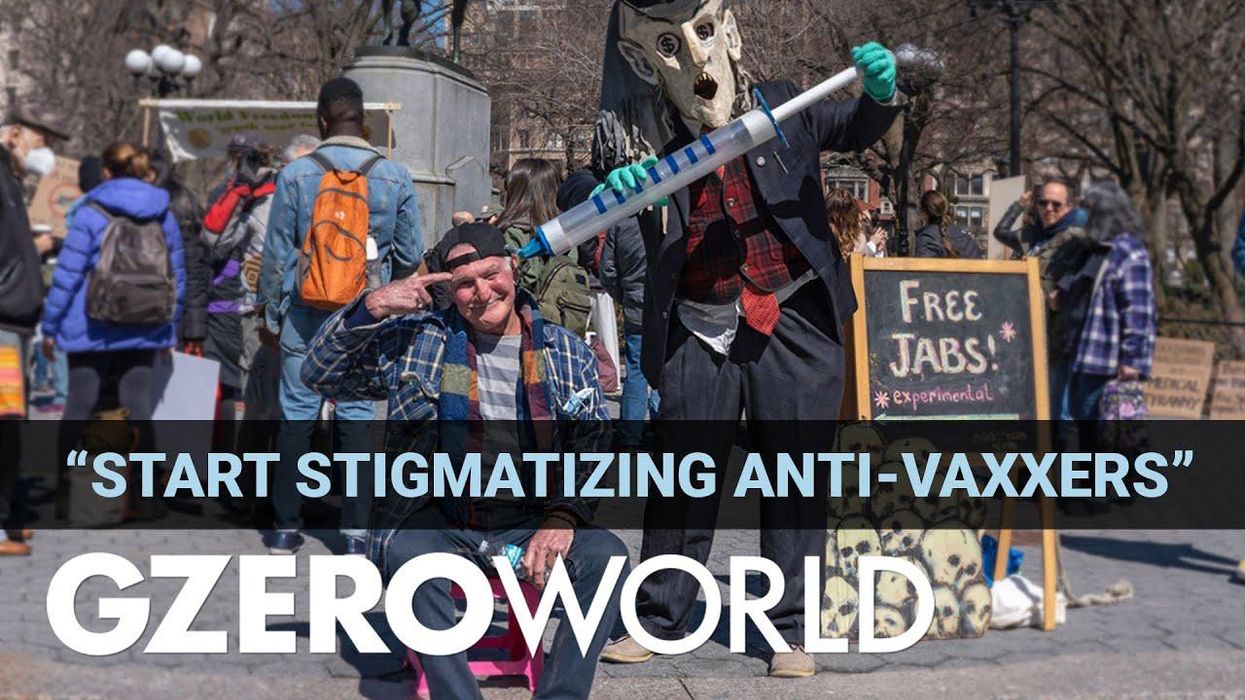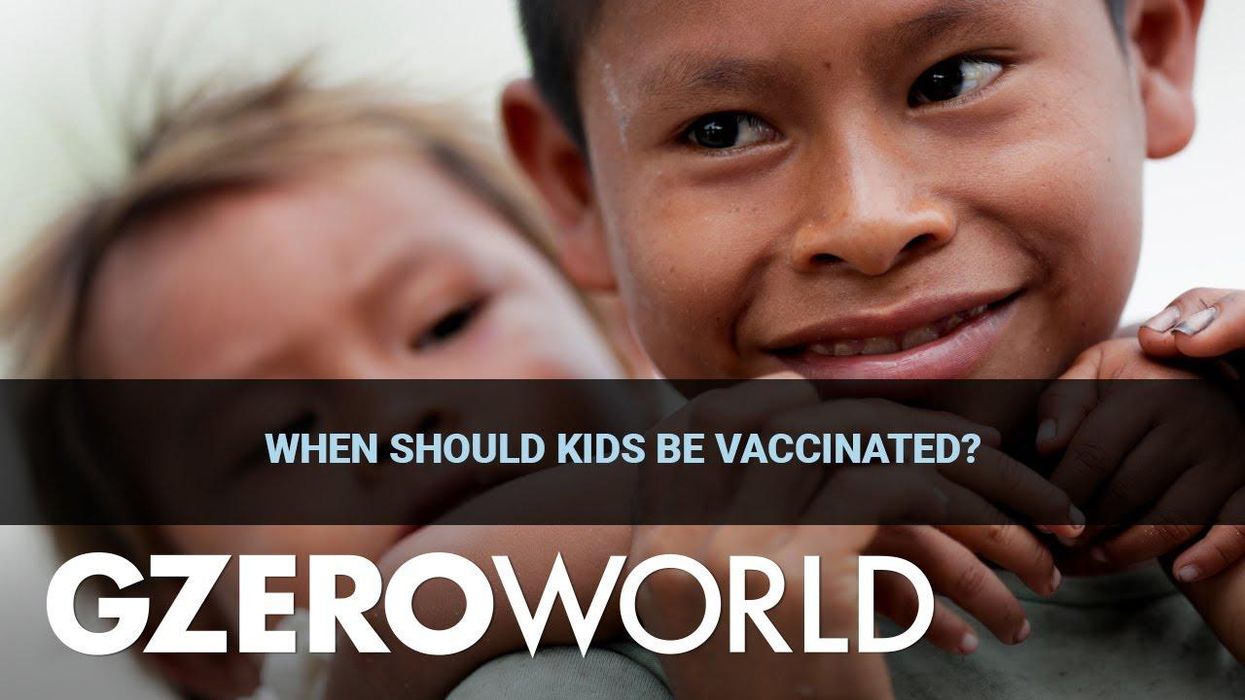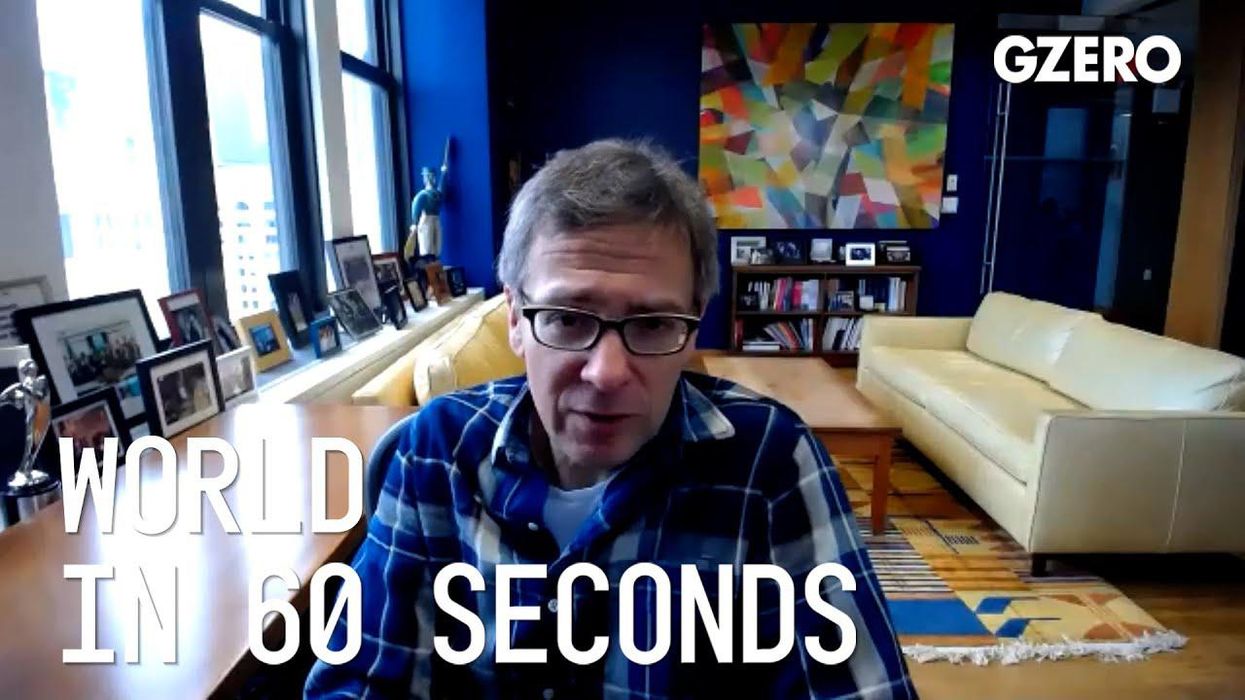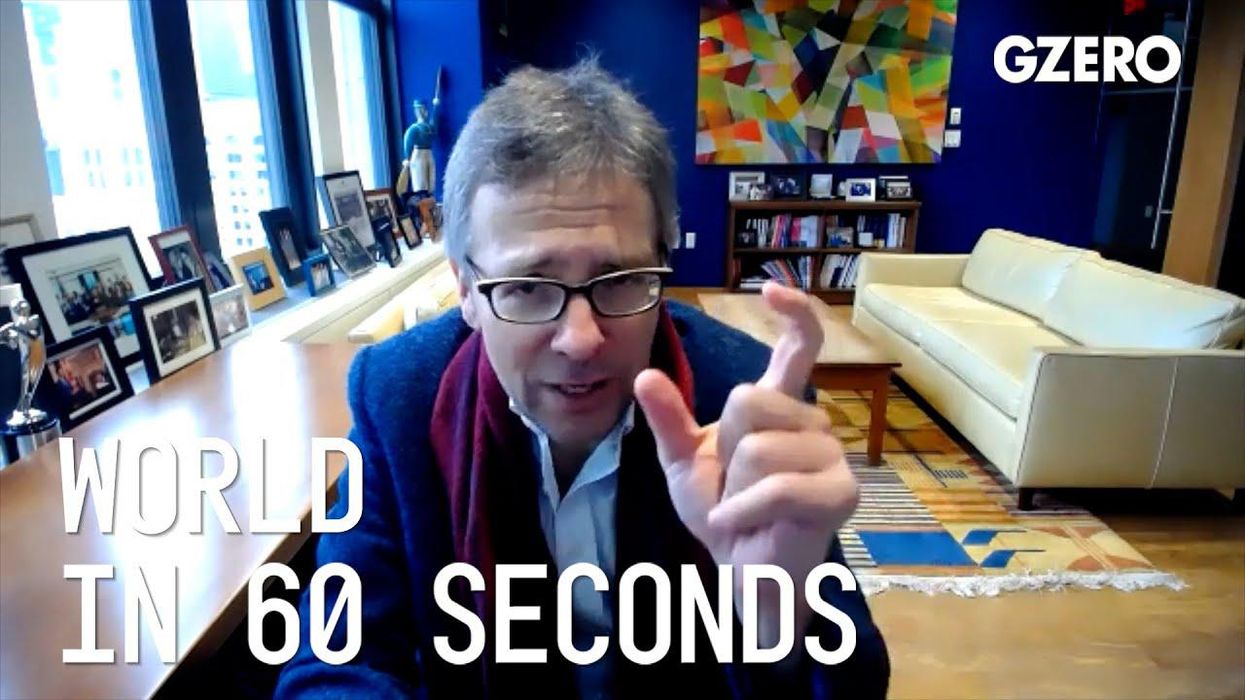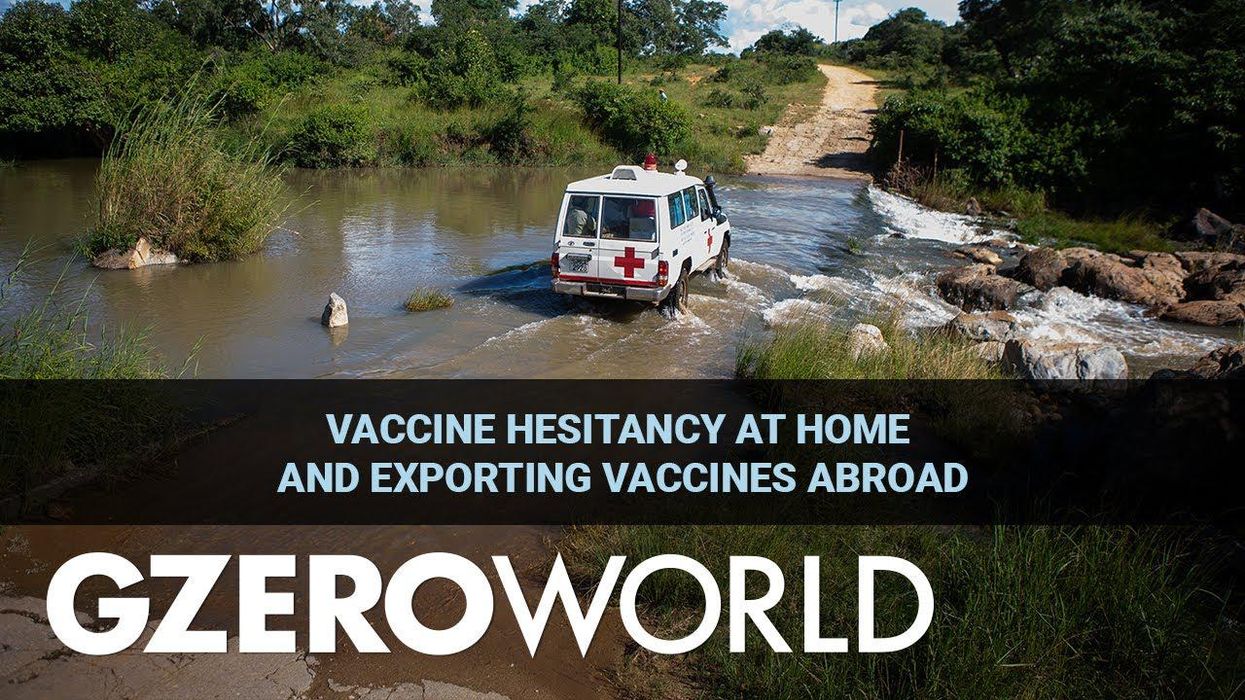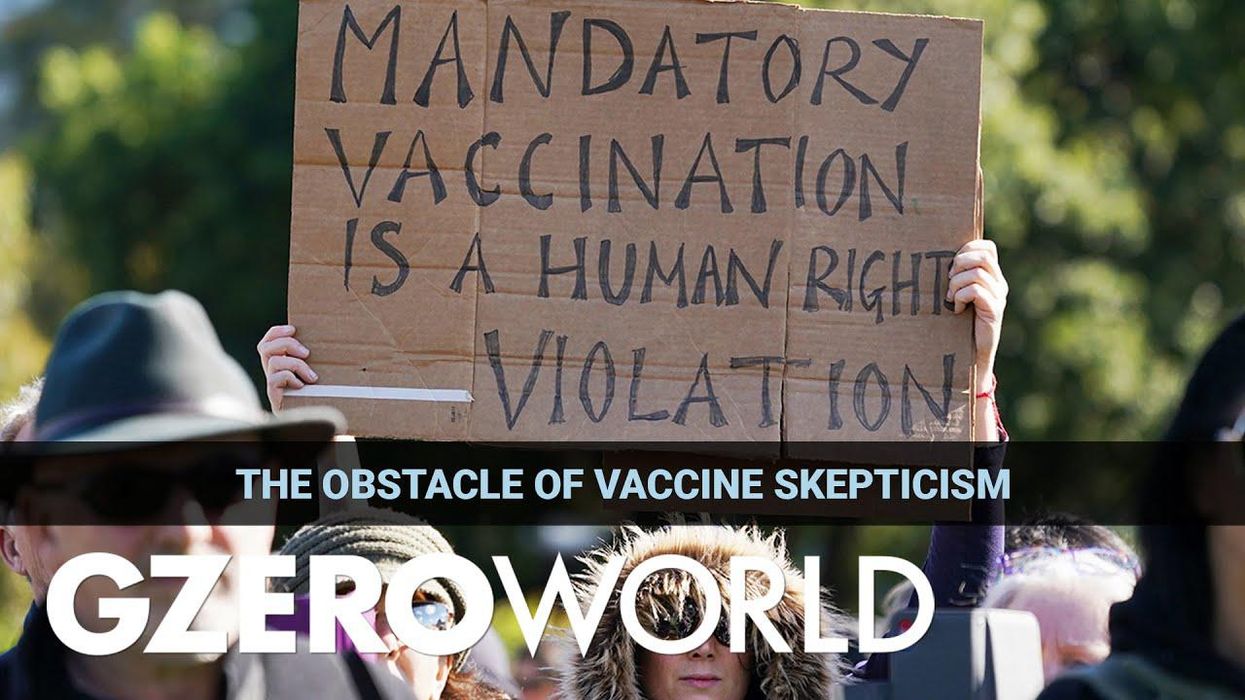GZERO World Clips
Why it’s time to “be done with” anti-vaxxers: Tom Nichols
International relations expert and Atlantic contributor, Tom Nichols, says it's time to start stigmatizing anti-vaxxers. The politicization of vaccines is a public health concern.
May 04, 2021
